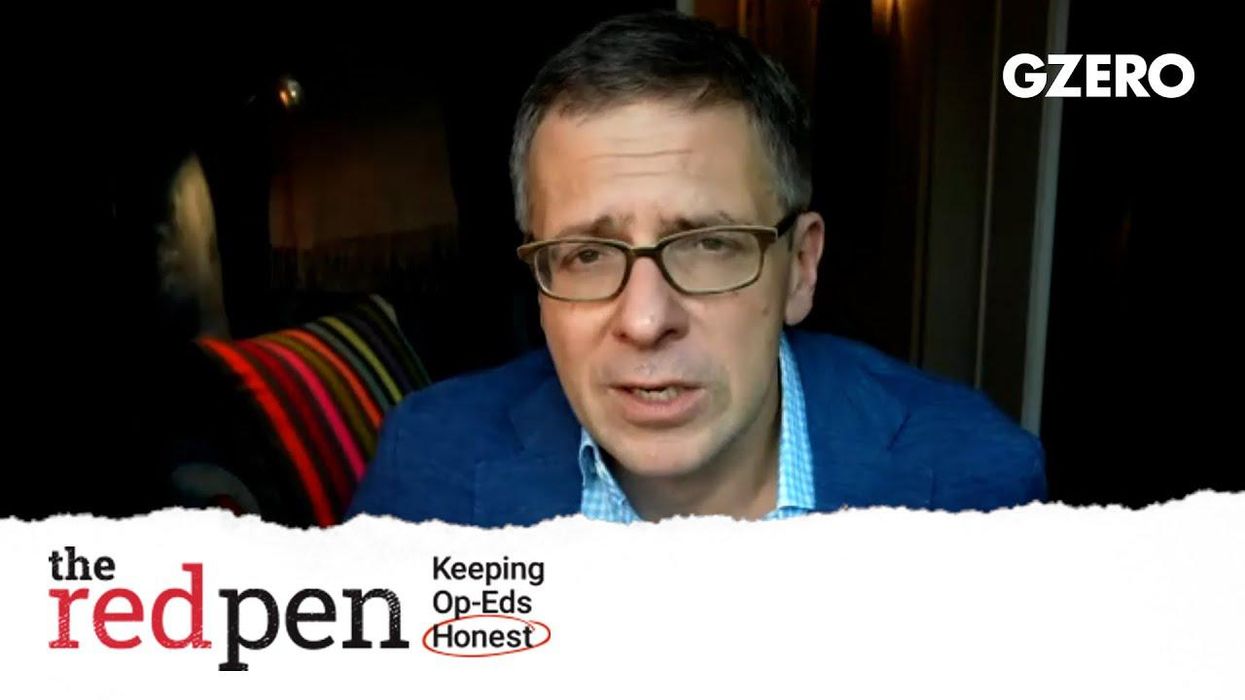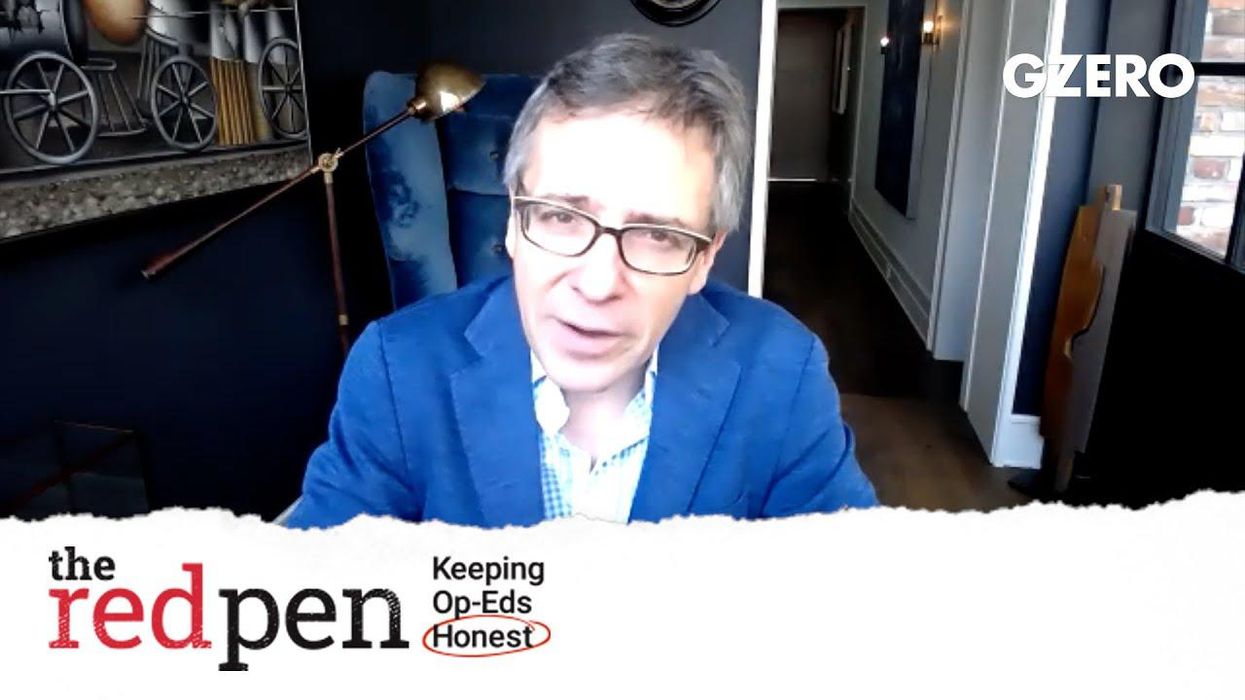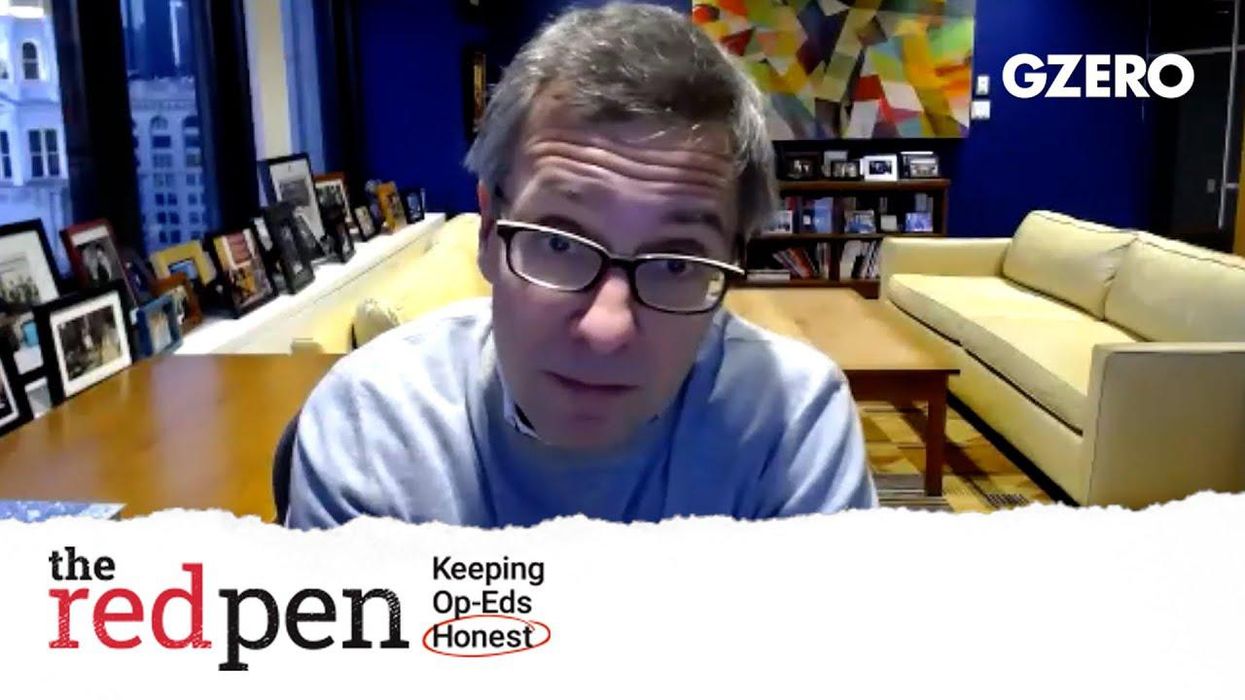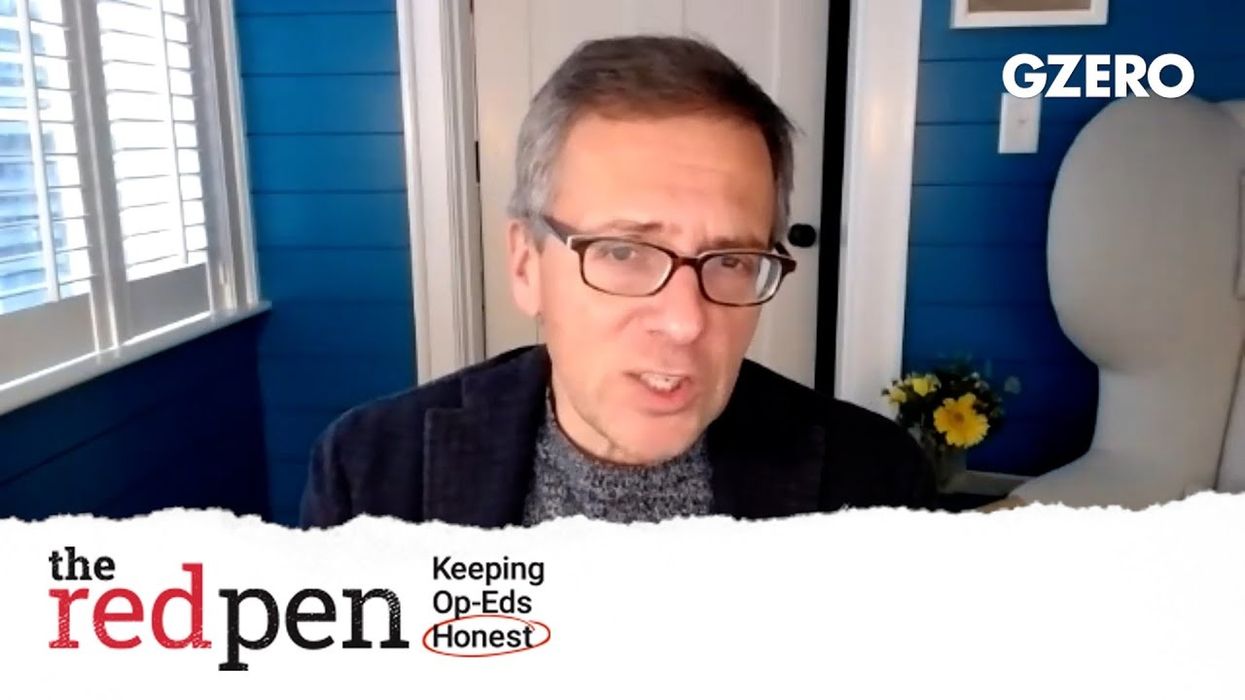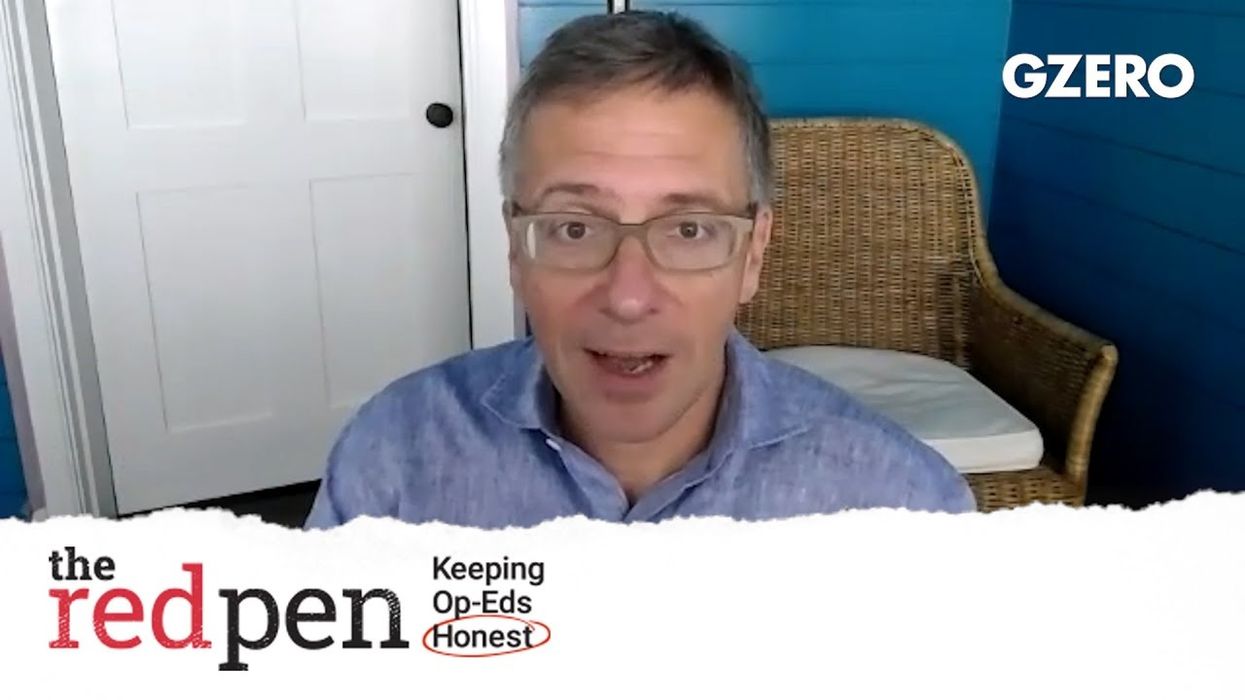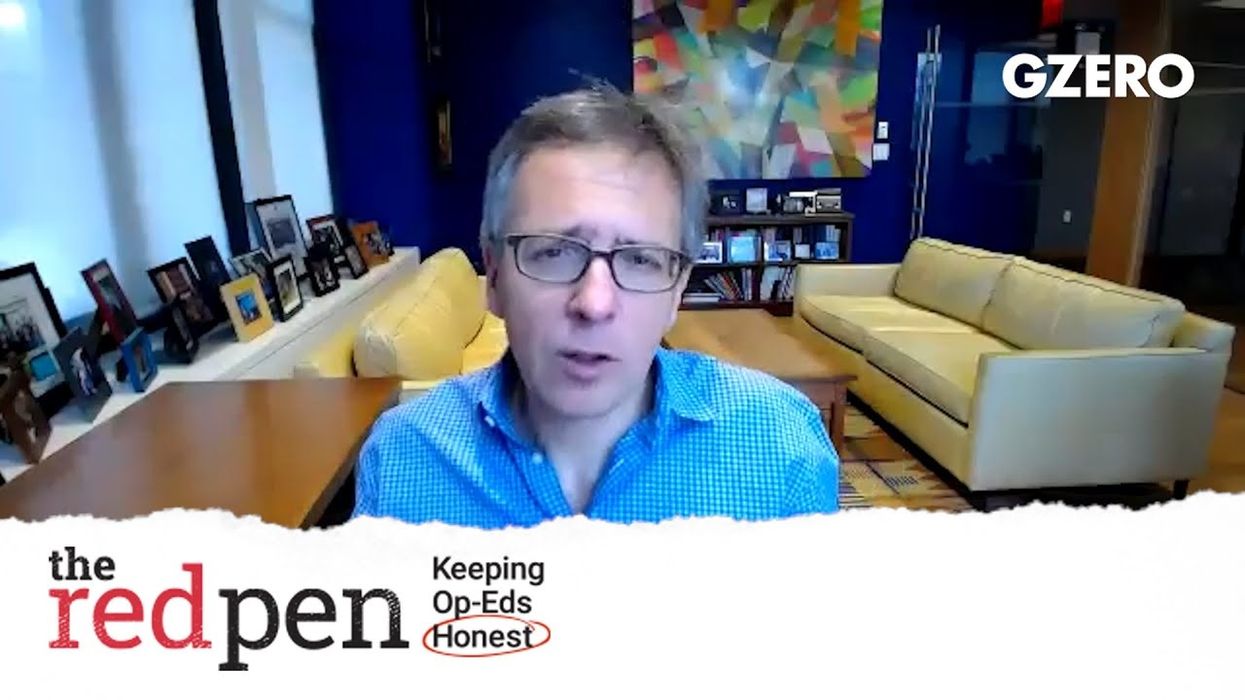VIDEOSGZERO World with Ian BremmerQuick TakePUPPET REGIMEIan ExplainsGZERO ReportsAsk IanGlobal Stage
Site Navigation
Search
Human content,
AI powered search.
Latest Stories
Start your day right!
Get latest updates and insights delivered to your inbox.
The Red Pen
On GZERO Media's series The Red Pen, Ian Bremmer and colleagues pick apart the argument in a major opinion piece.
Presented by
The Wall Street Journal says that it's partisan to compare the US pandemic response to Europe. In this episode of The Red Pen — where we do our best to keep op-eds honest — Ian Bremmer and Eurasia Group's Scott Rosenstein point out some flaws in the WSJ's argument.
Today we're taking our red pen to a recent piece from the editorial board of the Wall Street Journal. It's titled COVID Comparisons, Europe and the United States, and it argues that those who criticized US pandemic response by comparing it to Europe are guilty of partisan opportunism in an election year.
Four points we really want to dissect in this article. Let's start with the Wall Street Journal's argument that the United States has recorded fewer deaths per 100,000 people than the UK, Spain, Italy, and France. That's true for some European states, but the argument being made by the Wall Street Journal is that you're politicizing if you compare the US to Europe.
And actually, you compare the US to Europe as a whole, which seems the more appropriate point, because some places in Europe do well, some do badly. Some places in the US do well, some do badly. We all found out about coronavirus at the same time.
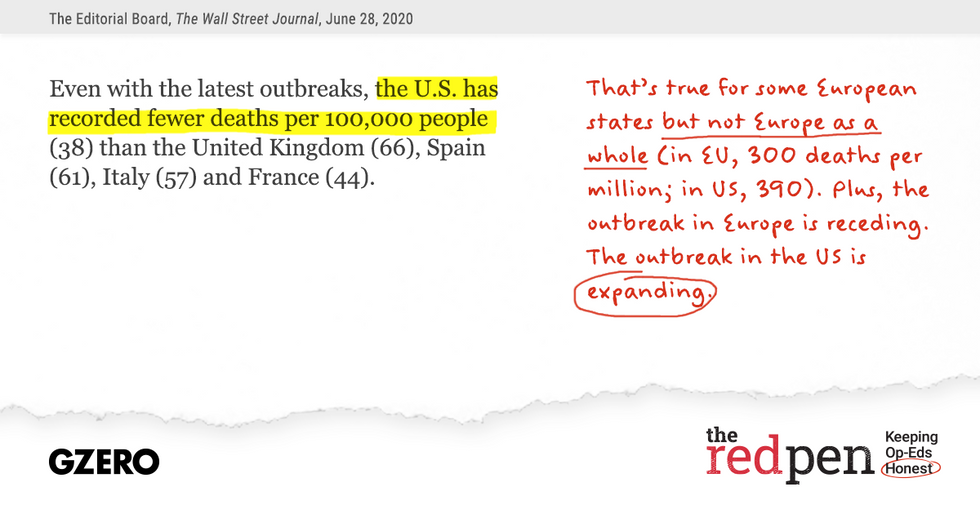
And in fact, since the coronavirus hit Europe, about 10 days earlier and scaled, than it did the United States, you'd expect we'd have more time to learn from those lessons. Especially since we didn't get a month because the Chinese were covering it up for both the Americans and the Europeans.
The EU had 300 deaths per million people. Here in the United States right now, it's 390. And certainly you'd expect, given caseload, that that gap is going to grow and not in America's favor. Also, it's important to note that, of course, overall, the outbreak in Europe is now receding. Again, the United States very dramatically different from that.
Number two, the Journal also claims that Southern states in the US didn't open up too early, that they lifted their lockdowns gradually and at around the same time as most European countries. That's actually deeply misleading. Europe had been closed longer and waited to open until its case count declined consistently. Florida, Texas, and Arizona all opened when daily cases were either steady or rising and with insufficient testing and tracing infrastructure.
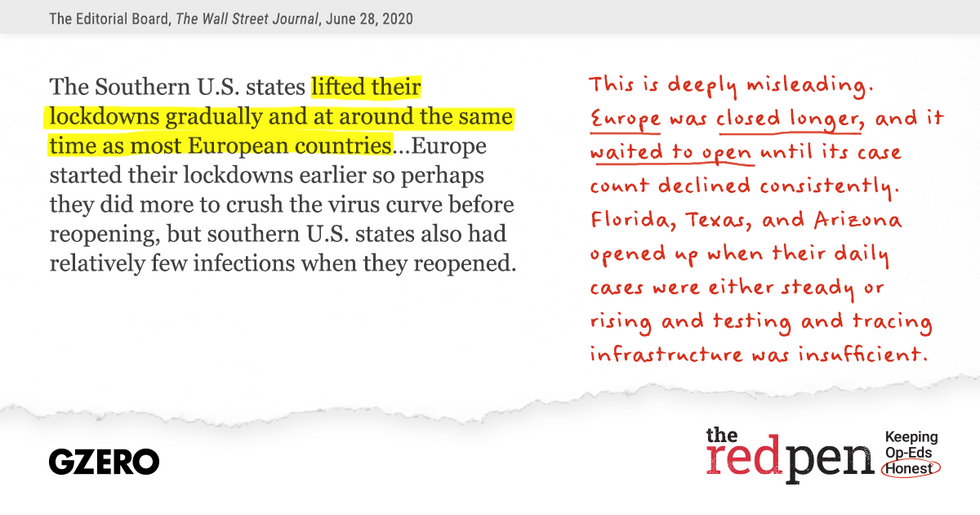
One of the biggest issues that the Centers for Disease Control in the United States actually laid out what the opening guidelines and principles should be. And then a number of US states, including some of the largest American states in population, simply ignored them. And the fact that now you have governors, lieutenant governors, with some of those very same states saying they're going to ignore continued directives from the CDC and from Dr. Fauci, while their cases are exploding, does not make you more optimistic about where the US is going to be versus Europe.
Third, a point about chastising GOP governors for letting wild and crazy youngsters crowd into bars. European countries are struggling to corral their youth too, writes the Wall Street Journal. And this is certainly true, but the issue is how significant the community spread is and whether governments can detect and stop outbreaks. Many European states have that capacity, the United States does not.
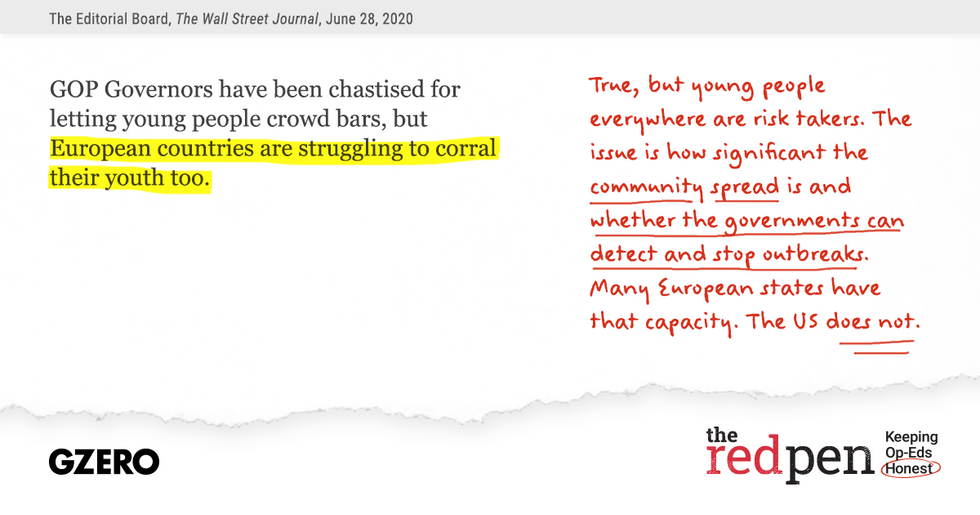
And finally, the Journal's editorial board asserts that a return to strict lockdowns isn't sustainable economically or politically, as even democratic governors admit. This is not a partisan issue. If deaths and hospitalizations continue to skyrocket, we could reach a threshold that makes strict lockdown the only option.
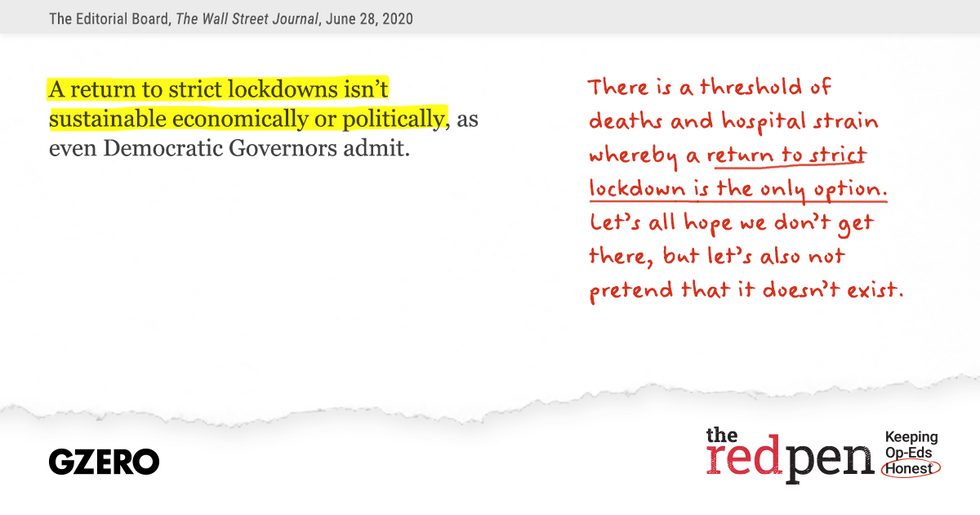
The biggest concern would be if we get to the point that you no longer have adequate ICU beds and healthcare for people that have cases, like you saw in Northern Italy. If we have to triage between patients that can and cannot get healthcare, that's when death rates, not just case rates, would suddenly explode across the United States.
Let's hope we don't get there. Right now, we're not, but it's naive to pretend that that possibility doesn't exist, given where the United States is right now. So there you have it folks. That's our latest edition of the Red Pen.
Keep reading...Show less
More from The Red Pen
Fix climate change, don't just adapt to its consequences
November 05, 2021
Biden's mistakes in Afghanistan were not "dereliction of duty"
September 02, 2021
US global power remains strong, despite Afghanistan mistakes
August 25, 2021
Would China really invade Taiwan?
May 06, 2021
Mitt Romney isn't the future of the GOP. He's the past.
February 12, 2021
Israel-UAE relations & the Abraham Accords are not at risk under Biden
February 05, 2021
China's EU deal betrays insecurity; not a wedge between US & EU
January 07, 2021
America is still a democracy post-Trump, but is it a healthy one?
December 11, 2020
Don’t "give up" on all 73 million Americans who voted for Trump
November 20, 2020
The GOP siding with Trump is hardly a threat to democracy
November 12, 2020
"Fixing" US foreign policy isn't the real challenge Biden would face
October 16, 2020
Calling AMLO authoritarian is a gross exaggeration
October 08, 2020
The US COVID response under Trump was not "merely mediocre"
September 09, 2020
US-Russia: An all-or-nothing approach leaves US with nothing
August 14, 2020
The recovery will be a jagged swoosh, not a V-shape
July 10, 2020
Hong Kong is a tragedy, not a domino
June 03, 2020
No, don’t abolish the WTO. Reform it.
May 07, 2020
Ian Bremmer: The United States isn't Sweden
April 30, 2020
GZERO Series
GZERO Daily: our free newsletter about global politics
Keep up with what’s going on around the world - and why it matters.

